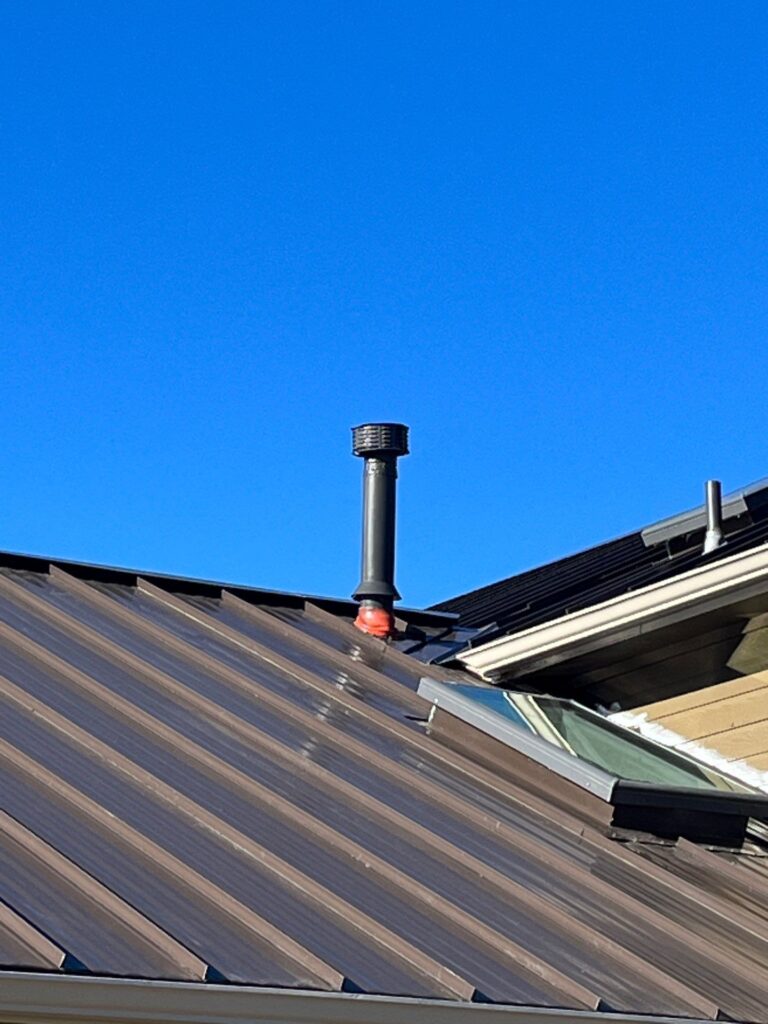The Interplay Between Metal Roofs and Wireless Communication
In today’s digitally-driven world, the impact of construction materials on wireless communication is a critical consideration. Metal roofs, celebrated for their durability and eco-friendliness, have prompted questions about their effect on Wi-Fi and cell phone signals. At Tried and True Roofing, we specialize in metal roofing installations that consider the nuances of modern connectivity. This article delves into how metal roofs interact with wireless signals and provides strategies to enhance connectivity.
Understanding Signal Interference with Metal Roofs
Metal’s conductive properties can lead to the absorption and reflection of electromagnetic waves, which are the carriers of Wi-Fi and cell phone signals. The degree of signal interference from a metal roof depends on factors like the metal’s composition, its thickness, and the location of the signal-emitting source.
Influential Factors on Signal Reception
Composition and Design of the Roof
The architectural design and material of the metal roof are crucial in determining its effect on signal strength. Roofs with extensive metal paneling may cause more significant disruption than those with smaller, divided panels. The type of metal – be it steel, aluminum, or a coated variant – also influences signal transmission.
Signal Source Location
The placement of Wi-Fi routers and the distance from cell towers are vital. Routers situated beneath metal roofs might experience increased signal reflection, while proximity to a cell tower can reduce the impact on cell reception.
External Environmental Elements
The surrounding environment, including other structures, natural landscapes, and vegetation, particularly in diverse areas like Denver, can also affect signal strength.
Enhancing Signal Strength Under Metal Roofs
Tried and True Roofing is dedicated to ensuring that your metal roof supports your connectivity needs. Here are some effective tactics:
Strategic Router Placement
Locating the Wi-Fi router in areas away from direct interference by the metal roof, such as near windows or in elevated positions, can significantly improve signal reception.
Signal Boosting Solutions
Employing signal boosters or repeaters can effectively enhance Wi-Fi and cell phone reception in areas with metal roofing. These devices amplify the signal, helping it navigate around interference.
Cutting-Edge Roofing Materials
Advancements in metal roofing materials have led to the creation of variants that are less conductive, thereby reducing their impact on wireless signals. These innovative materials maintain the traditional benefits of metal roofs while being more compatible with wireless technology.
Tried and True Roofing: Enhancing Your Digital Experience
At Tried and True Roofing, we combine our expertise in metal roofing with a commitment to modern connectivity requirements. Our metal roofing services in Denver are designed to ensure that your roof not only meets your aesthetic and functional needs but also supports robust wireless connectivity. We are focused on delivering roofing solutions that align with the technological needs of today, ensuring your metal roof is a wise, eco-friendly, and connected choice.
Conclusion
While metal roofs can influence Wi-Fi and cell phone signals, the impact is manageable with the right strategies. Understanding the interaction between metal roofs and wireless signals, and implementing solutions like strategic router placement and signal boosters, can help maintain strong connectivity. As a prominent metal roofing company in Denver CO, Tried and True Roofing is committed to providing roofing solutions that cater to the comprehensive needs of our clients, making your metal roof a smart, sustainable, and technologically compatible investment for your property.


